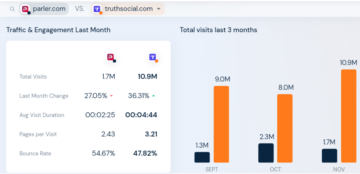Around 200 music artists, including Nicki Minaj, Kate Perry, Stevie Wonder, and the estates of Bob Marley and Frank Sinatra, signed an open letter calling on AI developers to stop using their work without permission.
The letter, released by the Artists Rights Alliance on Tuesday, accused developers, tech companies and digital music platforms of using AI to “infringe upon and devalue the rights of human artists” like songwriters and musicians.
Also read: AI ‘Apocalypse’ Could Lead to 7.9 Million Job Losses in UK, Study Finds
AI ‘assault on human creativity’
The Alliance says developers are using existing music to produce AI “copycats” – from songs, sounds and images – without consent. The plan is “directly aimed at replacing the work of human artists” as well as dilute royalty payments given to artists for their work.
“This assault on human creativity must be stopped,” the open letter reads. “We must protect against the predatory use of AI to steal professional artists’ voices and likenesses, violate creators’ rights, and destroy the music ecosystem.”
The artists said they believe artificial intelligence has “potential to advance human creativity” in ways that bring “exciting experiences for music fans everywhere,” but only when used responsibly.
“Unfortunately, some platforms and developers are employing AI to sabotage creativity and undermine artists, songwriters, musicians and rightsholders,” the open letter stated.
The musicians who signed on include Ja Rule, Jon Bon Jovi, Billie Eilish, Brothers Osborne, Ayra Starr, Camila Cabello, Zayn Malik, Jason Isbell, Czarface, Miranda Lambert, Noah Kahan, Sam Smith, Kate Hudson, Rosanne Cash, and more than 190 others.

‘AI degrades value of our work’
In its open letter, the Artists Rights Alliance warned that without regulation, artificial intelligence will “degrade the value of our work and prevent us from being fairly compensated for it.”
The artists want digital music platforms and music-based services to pledge that they will not “develop or deploy” AI-music generation tools that “undermine or replace the human artistry of songwriters and artists or deny us fair compensation for our work.”
“Working musicians are already struggling to make ends meet in the streaming world, and now they have the added burden of trying to compete with a deluge of AI-generated noise,” Jen Jacobsen, executive director of the Alliance, said in a statement.
“The unethical use of generative AI to replace human artists will devalue the entire music ecosystem — for artists and fans alike.”
The use of AI in the creative sector has been a major source of worry lately. In October 2023, major music publishers – Universal Music Publishing Group, Concord Music Group and ABKCO — sued AI company Anthropic, creator of Claude AI assistant, over alleged copyright infringement.
Several authors also filed a lawsuit against OpenAI’s ChatGPT, which is trained using billions of datasets from the internet, over copyright. Last year, Hollywood actors and writers went on a five-month strike to demand AI is not used to replace their jobs.
The protest only ended after a deal that banned the use of AI-made material to “undermine a writer’s credit or separate rights.” But the agreement reportedly does not altogether prevent the use of all AI, although it stops studios from requiring writers to use it.
Left unchecked, Al will set in motion a race to the bottom that will degrade the value of our work and prevent us from being fairly compensated for it. This assault on human creativity must be stopped. Join the movement: https://t.co/JZYqmezk4U pic.twitter.com/fcCxNsAFuz
— Artist Rights Alliance (@artistrightsnow) April 2, 2024
Disrupting industries
SAG-AFTRA union members were on strike for even longer, Forbes reports. They were concerned that generative AI could potentially “replace extras in films and could be used to shoot or reshoot scenes” that previously required a human actor to be on set.
In the end, union members agreed to a deal that limits the use of AI and “studios promised to pay actors whose digital likeness is used as if they’d worked on set.” Companies also said they would seek permission for every new film using a likeness.
In February, Tyler Perry stopped the $800 million expansion of his studio in Atlanta over concerns about OpenAI’s new AI model Sora, which creates ‘realistic’ videos from text prompts.
The filmaker said he was “very, very concerned” that Sora could lead to the loss of “a lot jobs” in the movie industry. He believes “actors, editors, sound specialists and transporters” could lose their jobs.
- SEO Powered Content & PR Distribution. Get Amplified Today.
- PlatoData.Network Vertical Generative Ai. Empower Yourself. Access Here.
- PlatoAiStream. Web3 Intelligence. Knowledge Amplified. Access Here.
- PlatoESG. Carbon, CleanTech, Energy, Environment, Solar, Waste Management. Access Here.
- PlatoHealth. Biotech and Clinical Trials Intelligence. Access Here.
- Source: https://metanews.com/nicki-minaj-kate-perry-200-other-artistsa-slam-ai-developers-for-devaluing-music/
- :has
- :is
- :not
- 200
- 2023
- 7
- 8
- 9
- a
- About
- accused
- actors
- added
- advance
- After
- against
- agreed
- Agreement
- AI
- AI assistant
- aimed
- AL
- alike
- All
- alleged
- Alliance
- already
- also
- Although
- altogether
- an
- and
- ARE
- artificial
- artificial intelligence
- artist
- artistry
- Artists
- AS
- assault
- Assistant
- At
- atlanta
- authors
- banned
- BE
- been
- being
- believe
- believes
- Billie
- billions
- bob
- Bottom
- bring
- brothers
- burden
- but
- by
- calling
- Cash
- ChatGPT
- Companies
- company
- compensated
- Compensation
- compete
- concerned
- Concerns
- consent
- copyright
- copyright infringement
- could
- creates
- Creative
- creativity
- creator
- credit
- Credits
- datasets
- deal
- Demand
- destroy
- developers
- digital
- Director
- does
- ecosystem
- editors
- employing
- end
- ended
- ends
- Entire
- Even
- Every
- everywhere
- executive
- Executive Director
- existing
- expansion
- Experiences
- fair
- fairly
- fans
- February
- Film
- films
- For
- Forbes
- frank
- from
- generation
- generative
- Generative AI
- given
- Group
- Have
- he
- High
- his
- HTTPS
- human
- if
- image
- images
- in
- include
- Including
- industry
- infringement
- Intelligence
- Internet
- IT
- ITS
- jen
- Job
- Jobs
- join
- jon
- jpg
- Last
- Last Year
- lawsuit
- lead
- letter
- like
- limits
- longer
- lose
- loss
- losses
- Lot
- major
- make
- material
- max-width
- medium
- Meet
- Members
- million
- model
- more
- motion
- movement
- movie
- Music
- musicians
- must
- New
- Noah
- Noise
- now
- october
- of
- on
- only
- open
- or
- Other
- Others
- our
- over
- Pay
- payments
- permission
- plan
- Platforms
- plato
- Plato Data Intelligence
- PlatoData
- Pledge
- potentially
- predatory
- prevent
- previously
- produce
- professional
- promised
- prompts
- protect
- protest
- publishers
- Publishing
- Race
- Read
- Regulation
- released
- replace
- reportedly
- required
- responsibly
- rights
- royalty
- Rule
- Said
- Sam
- says
- sector
- Seek
- separate
- Services
- set
- Shoot
- signed
- smith
- some
- songwriters
- Sound
- sounds
- Source
- specialists
- stated
- Statement
- steal
- Stop
- stopped
- Stops
- streaming
- strike
- Struggling
- studio
- studios
- Study
- sued
- tech
- tech companies
- text
- than
- that
- The
- their
- they
- this
- to
- tools
- trained
- true
- trying
- Tuesday
- tyler
- Uk
- Undermine
- union
- Universal
- upon
- us
- use
- used
- using
- value
- very
- Videos
- VOICES
- want
- warned
- was
- ways
- WELL
- went
- were
- when
- which
- WHO
- whose
- will
- with
- without
- wonder
- Work
- worked
- world
- worry
- would
- writers
- year
- zephyrnet













